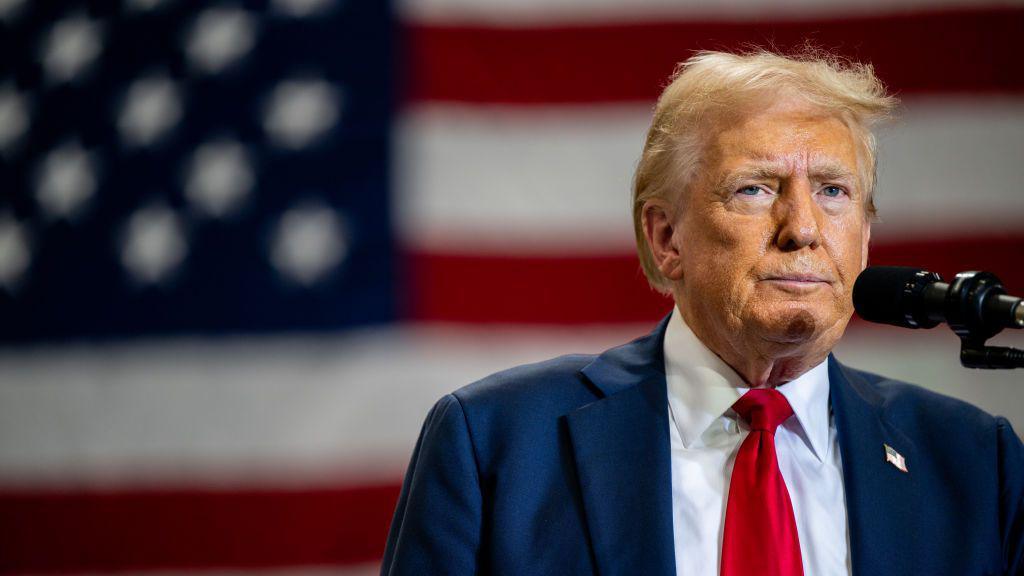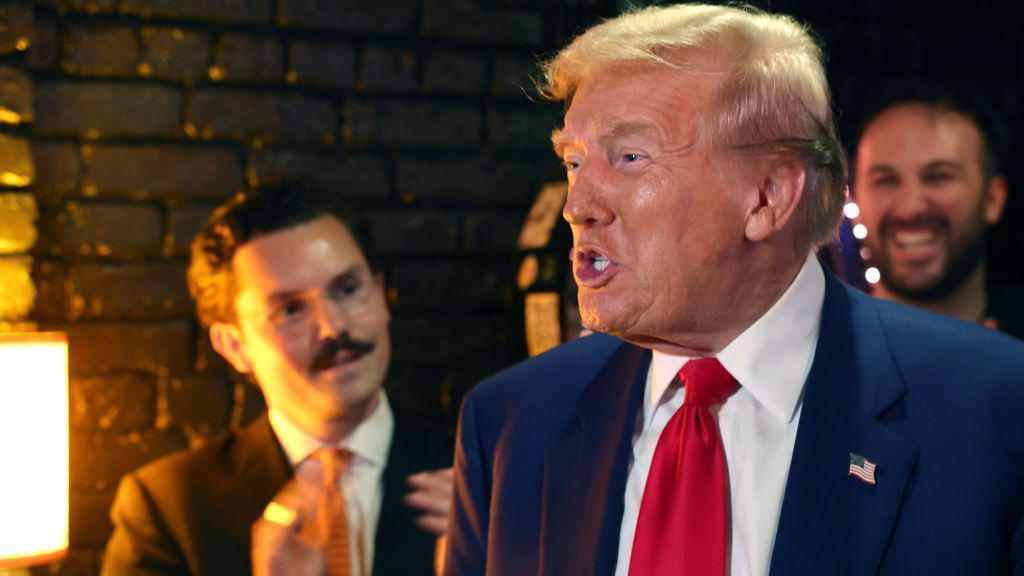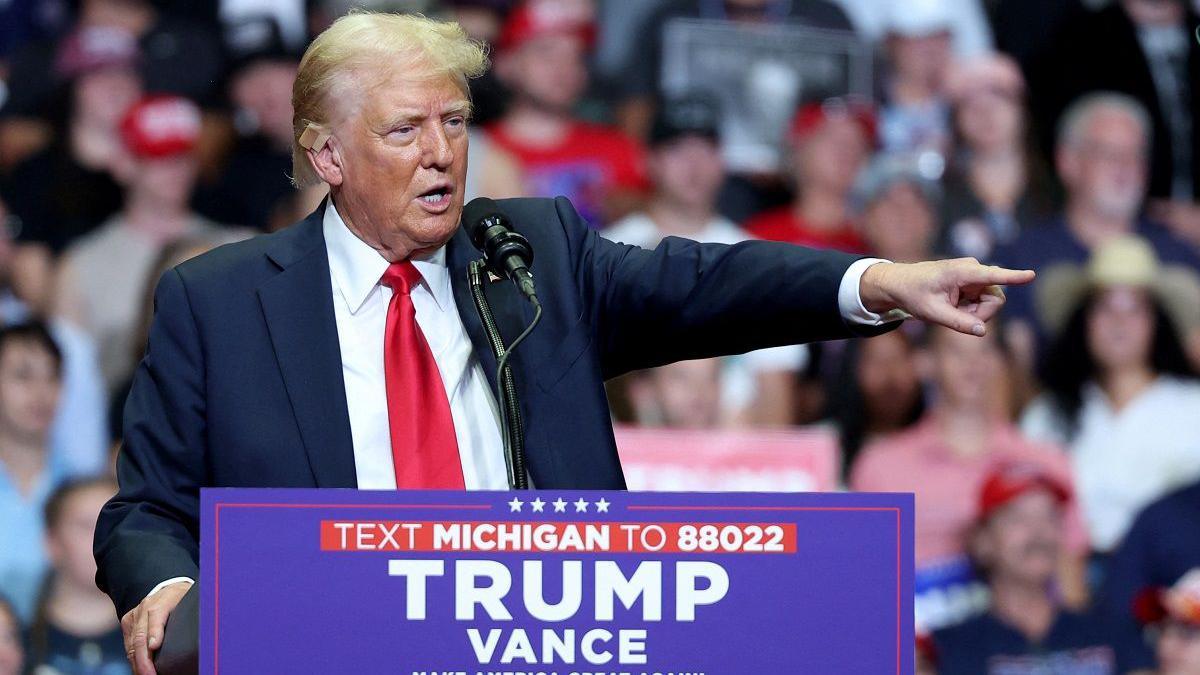US charges three Iranians with hacking Trump campaign

Donald Trump campaigns in North Carolina.
- Published
US authorities have charged three Iranians with hacking Donald Trump's presidential campaign this year.
Prosecutors say Masoud Jalili, Seyyed Ali Aghamiri and Yasar Balaghi are members of Iran's Islamic Revolutionary Guard Corps who engaged in a "hack and leak" operation in a "deliberate attempt" to undermine an unnamed presidential campaign.
Last week US officials said Iranian hackers had tried to distribute stolen material from the Trump campaign to individuals linked to Joe Biden's re-election effort.
The trio are charged with 18 counts that include wire fraud, identity theft, and material support to a designated foreign terrorist organisation, as well as hacking-related charges.
In August, the Trump campaign said its internal communications were hacked by Iran. Iran officials denied involvement in the hack in a statement at the time.
A few days later, the Federal Bureau of Investigation confirmed that Iran was behind the infiltration of Trump's campaign.
In a statement issued with other US intelligence agencies, the FBI warned that Iran was trying to "stoke discord and undermine confidence in our democratic institutions".
The agencies warned they had "observed increasingly aggressive Iranian activity during this election cycle".
The 37-page indictment outlines a years-long hacking campaign that targeted US government and intelligence officials, the media, and individuals associated with political campaigns, beginning in 2020.
In May 2024, the Department of Justice alleges, the three accused hackers and conspirators began targeting "US Presidential campaign 1".
They allegedly stole some of its documents and communications through fraudulent email accounts impersonating US government officials and phishing tactics that allowed them to gain access to personal email accounts of people working with the campaign.
Then in June they "sought to weaponize" the information by attempting to leak it to the media and individuals associated with "US Presidential campaign 2", the department alleges.
When asked at a press conference whether the Biden campaign ever used the hacked materials, Attorney General Merrick Garland said “we’ve seen no indication that anyone replied".
He added that the FBI received “good cooperation” from the Trump campaign and the Biden campaign, which was taken over by Vice-President Kamala Harris in July.
The Harris campaign said it was cooperating with law enforcement agencies.
"We’re not aware of any material being sent directly to the campaign; a few individuals were targeted on their personal emails with what looked like a spam or phishing attempt," said Morgan Finkelstein, the Harris campaign's national security spokeswoman.
The BBC has asked the Trump campaign and Iran's mission to the United Nations for comment on the case.
Two email accounts associated with a "former, informal political consultant to the Trump campaign" were compromised, along with an unnamed official on the campaign and an attorney representing it, according to the indictment.
"Today the FBI would like to send a message to the government of Iran – you and your hackers can’t hide behind your keyboards," said FBI Director Christopher Wray in a statement, adding that the charges represented "the culmination of a thorough and long-running FBI investigation".
Among the documents Iran is thought to have obtained from the Trump campaign is a dossier of research into vice-presidential nominee JD Vance.
The dossier and other documents were sent to several major US news outlets, but were not widely distributed until Thursday when journalist Ken Klippenstein, who formerly worked for investigative outlet The Intercept, posted the Vance material on his blog.
Klippenstein, who said someone named "Robert" had offered him the dossier, was swiftly banned from X, formerly Twitter. In a statement the company said the journalist had violated rules against revealing personal information.
Related topics
- Published19 September 2024

- Published12 August 2024
